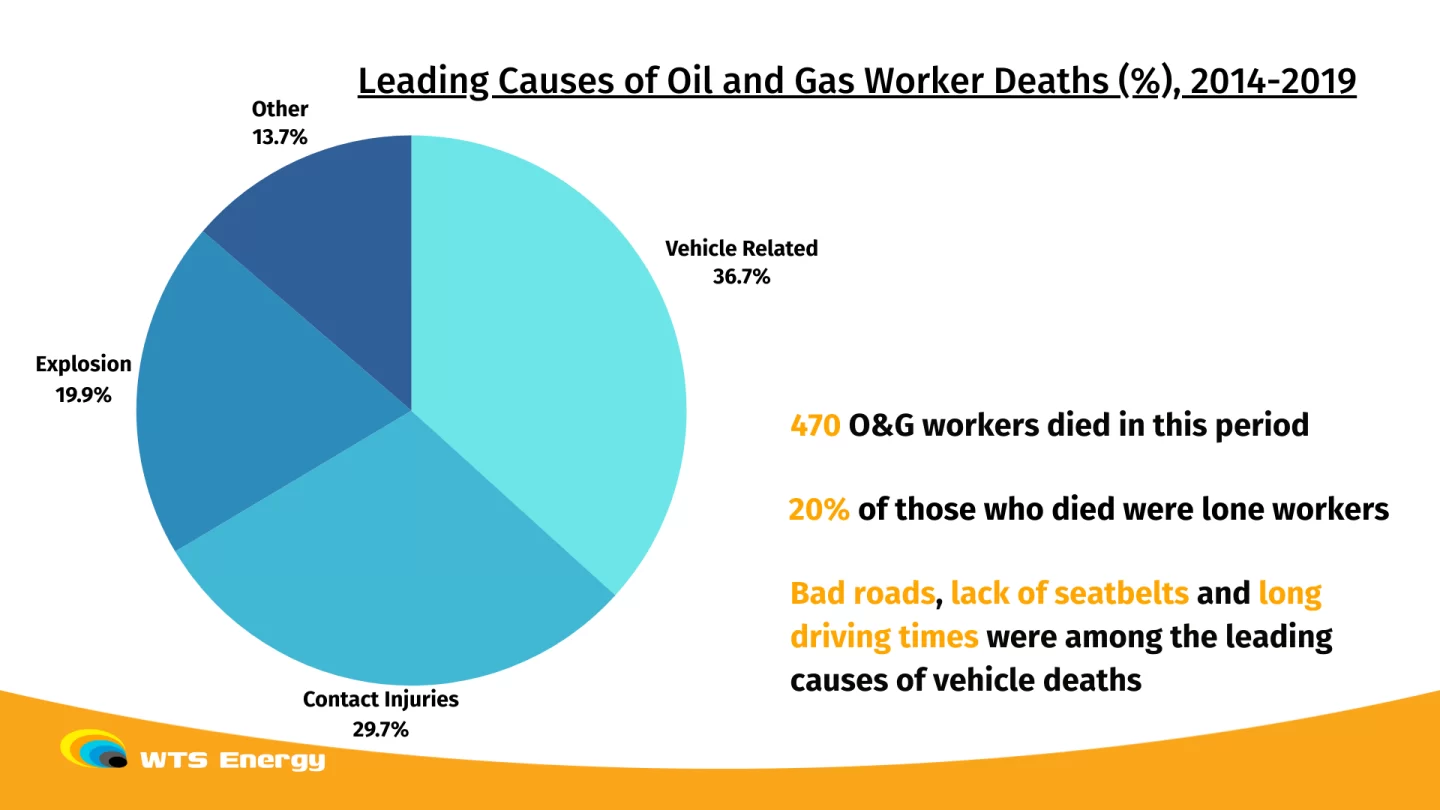Entering the oil and gas industry demands more than skill ––it requires a commitment to safety. Oil and gas workers face many potential dangers in their work environment such as fall and machine hazards. Now, we explore the most dangerous jobs and the most common hazards in this dynamic sector and provide safety tips for oil and gas workers to help you stay safety to work in the oil and gas industry.
The most dangerous jobs in oil and gas

The most dangerous jobs in the oil and gas industry are often drillers and derrick hands working on rigs. These professionals work in an environment full of hazards, including heavy machinery, high-pressure equipment, and the risk of falling from great heights. The combination of physically demanding tasks, complex machinery and exposure to harsh conditions underscores the challenging nature of their work.
The most common hazards when working in the oil and gas industry
Workers in the oil and gas industry face a range of hazards, including those associated with heavy machinery, mechanical failure, exposure to hazardous chemicals and the constant threat of fire and explosion. The hazards extend to confined spaces where the risk of being crushed, suffocated, or trapped is prevalent. In the offshore environment, elevated working environments with the potential for slips, trips, and falls are also extremely dangerous.

Tips to prevent incidents
1. Maintain Visible Uniforms

Safety in the workplace relies heavily on high-visibility clothing, characterized by distinctive colors and stripes. Reflective fabrics lose efficacy if they are too dirty. It is important to ensure regular cleaning of work clothing and to replace items when they become too dirty.
2. Keeping Up with Machine Maintenance

Conduct routine inspections of machinery and equipment to identify and address potential issues before they escalate, ensuring proper maintenance and functionality.
3. Take the safety program seriously

Read the training manual and partake in the mandatory training program before you enter the field. The training should cover a range of topics, including proper storage procedures for tools and machinery, safety protocols, equipment operation, and emergency response procedures.
4. Be familiar with emergency response plans

Learn and regularly review comprehensive emergency response plans, ensuring you are familiar with evacuation procedures, first aid, and the use of firefighting equipment.
5. Prioritize your mental Health

Mental health is as important to safety at work as physical strength and ability. If you are facing emotional challenges, follow your employer’s procedures for seeking help. Maintain a secure working environment by minimizing mental distractions.
6. Monitor Locked Out Zones

Be aware of which areas are locked out and which equipment is tagged out. If you observe safety signs, tape or tags that are not properly displayed, inform the appropriate parties immediately. If you are responsible for marking certain areas, regularly assess your work to ensure that all warning indicators are secure, visible, and correctly marked.
7. Keep your head in the game!

Most importantly, always be mindful and aware of the things around you. Whether it’s colleagues, tools or heavy equipment, a slippery edge or a broken cable, a keen eye informing a receptive mind can save hundreds of deaths with a simple observation
8. Don’t Follow HSE: Be HSE
In conclusion, we recommend that you don’t see HSE as a complicated set of rules. While it can certainly set a lot of rules that can be hard to remember and follow, HSE guidelines are the difference between life and death. Although these safety tips for oil and gas are useful, it’s best to adopt the mindset of putting safety first no matter what you do; scan your environment, assess the risks, and be prepared to react.



